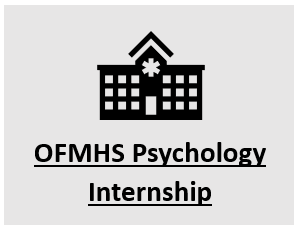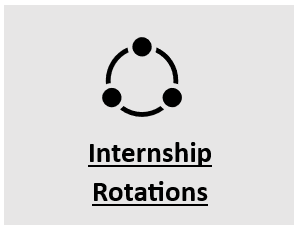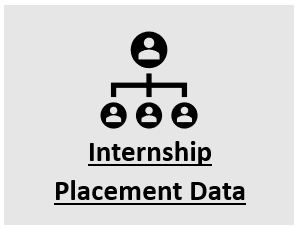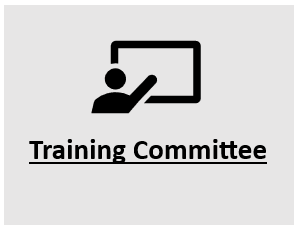The OFMHS Psychology Internship Program (formerly the Western State Hospital Clinical Psychology Internship Program) was provisionally accredited by the American Psychological Association in 1986 and fully accredited in 1989. It has maintained this accreditation for over 35 years. The most recent site visit by APA was conducted in fall 2025. The Internship Program follows the practitioner-scholar model. The APA Commission on Accreditation can be reached at 750 First St. NE, Washington, DC 20002, (202) 336-5979.
The internship runs from August 1 through July 31. Each intern is expected to complete three four-month rotations, as well as various other projects and activities (see Requirements for Completion of Internship Program in the internship brochure). OFMHS doctoral psychology interns are able to work with a diverse array of populations across several rotations. Available settings include the Centennial Building in Tacoma (which houses the rotations for competency and forensic risk assessment and also serves as interns’ “home base”), Western State Hospital, the Behavioral Health and Treatment Center - Steilacoom Unit, Child Study and Treatment Center, and the Special Commitment Center. Rotation selections are intended to balance individual intern interests and training needs.
Training Philosophy
The OFMHS Internship Program seeks to train interns for independent psychological practice by exposing them to a wide spectrum of patients with severe psychiatric disorders, promoting a mentoring relationship with senior professionals, and combining psychological practice with didactic learning. Because many rotations involve work with forensic populations, there is a forensic focus to the internship; however, the internship is nevertheless a generalist program, designed to solidify an intern’s knowledge acquisition and practice more generally and in a way not exclusive to a forensic practice.
Goals and Objectives
The primary goal of our program is to provide interns with the knowledge and skills required for independent practice as psychologists. We aim to achieve this goal by providing a breadth and depth of core training opportunities, including treating individuals with a wide variety of complex psychological problems; conducting empirically-based psychological assessments (both for the courts as well as part of patient treatment); engaging in collaborative, multi-disciplinary consultation; and arranging supervision experiences through our practicum program. Additionally, we strive to engender in our interns those core professional attitudes and abilities that will facilitate their future practice as ethical psychologists and instill an appreciation and respect for the role of individual and cultural differences within the field of psychology.
Applicant Requirements
OFMHS is committed to providing high-quality training experiences for interns. Only those applicants from APA-accredited clinical or counseling psychology programs are considered for the four available internship positions. Applicants from stand-alone forensic psychology programs will not be considered, as these programs are not APA-accredited.
Three years of graduate work and at least 500 hours of practicum experience are required prior to the internship year, with a minimum of 300 intervention hours and 100 assessment hours. Applications from graduate programs outside the United States who do not have U.S. citizenship will not be considered at this time, due to the limitations for retention beyond the internship year posed by the J-1 visa for non-U.S. students. Applicants who are not U.S. citizens but are currently attending graduate school in the United States are welcome to apply. Application materials include the APPIC application form, a current curriculum vita, graduate school transcript(s), the Verification of Internship Eligibility and Readiness section of the application signed by the director of training, three letters of recommendation, and one de-identified integrative psychological evaluation.
A DSHS background check is required after interns have been matched with our site. This form includes information regarding prior criminal convictions and any pending criminal charges; history of perpetrating physical abuse, sexual abuse, abandonment, or neglect of any person; termination or revocation of contracts or licenses to provide care; and any court-issued orders of protection. No intern will be accepted into the program who does not pass the background check. Interns wishing to complete rotations at the Child Study and Treatment Center or outpatient competency evaluations will require additional background checks. Outpatient competency evaluation background checks relate to entry into jails; interns will be required to provide information as to whether they have ever been charged with any crime, ever had a relationship with anyone who has been incarcerated, or ever bought, used, or distributed illegal substances. Please note that a previous arrest or conviction for a misdemeanor offense will not necessarily preclude an intern from employment at our site. Depending on the nature of the offense, applicants may still be eligible for internship at OFMHS; this will be considered on a case-by-case basis.
As a condition of employment, interns are required during the onboarding process at WSH to 1.) Have had a negative TST (tuberculin skin test) or IGRA (Interferon Gamma Release Assay) within the past 12 months, or 2.) Have a current chest x-ray/documentation of completed TB treatment and documentation of a TB Symptom Assessment (if positive TST or IGRA), and agree to have TB Symptom Assessment documentation performed annually thereafter. Additionally, interns must have current immunizations, titers evidencing immunity, or a signed declination for vaccination against hepatitis B, MMR, varicella (chickenpox), and Tdap (tetanus with whooping cough). While these vaccinations are not mandatory, they are highly recommended.
Salary/Benefits
Interns are Washington state employees and receive a 12-month stipend of $76,798 for 2,000 hours of work, as well as vacation, sick leave, and access to state health care plans.
Financial and Other Benefit Support for Upcoming Training Year*
| Annual Stipend/Salary for Full-time Interns | $76,798 | |
| Annual Stipend/Salary for Half-time Interns | 0 | |
| Program provides access to medical insurance for intern? | Yes | |
| If access to medical insurance is provided: | ||
| Trainee contribution to cost required? | Yes | |
| Coverage of family member(s) available? | Yes | |
| Coverage of legally married partner available? | Yes | |
| Coverage of domestic partner available? | Yes | |
| Hours of Annual Paid Personal Time Off (PTO and/or Vacation) | 112 | |
| Hours of Annual Paid Sick Leave | 96 | |
| In the event of medical conditions and/or family needs that require extended leave, does the program allow reasonable unpaid leave to interns/residents in excess of personal time off and sick leave? | Yes | |
| Other Benefits (please describe): Washington State employee benefits | ||
Internship Program Admissions
| Does the program require that applicants have received a minimum number of hours of the following at time of application? If Yes, indicate how many: | ||||||||
| Total Direct Contact Intervention Hours | Y | Amount: 300 | ||||||
| Total Direct Contact Assessment Hours | Y | Amount: 100 | ||||||
Experiences

The program provides opportunities to work with unique populations, including seriously mentally ill individuals who have been charged with or convicted of criminal offenses, children with severe psychiatric and behavioral problems, and sexually violent predators. Interns are allowed some flexibility in structuring their activities during the year. Opportunities can be unique, varied, and adapted to suit different interests and training needs. Interns may obtain experience in the following areas:
Evaluation of social, cognitive, psychological, behavioral, and organic factors in psychopathology. Interns receive training in clinical interviewing and the use of structured and unstructured psychological assessment. Interns are responsible throughout the training year for administering and interpreting psychological test batteries and preparing written reports. These test batteries may be related to forensic evaluations or treatment. Evaluations focus on a wide variety of issues, including diagnosis, response style, suicide risk, trauma, amenability to treatment, dangerousness, need for involuntary commitment, and potential for recidivism.
Report writing and communication skills.
Effective written and verbal skills are essential in communicating information and recommendations to colleagues, other professionals (e.g., court), and patients. Interns may receive training in forensic and clinical writing in a variety of scenarios (e.g., competency to stand trial evaluations, forensic risk assessments, individual and group treatment notes, diagnostic evaluations, etc.).
Individual and group psychotherapy. Therapeutic approaches used by treatment staff include behavior modification, cognitive-behavioral methods (e.g., dialectical behavior therapy, motivational interviewing, illness management and recovery), crisis intervention, trauma resolution, and skill-building. Interns are expected to use these and other evidence-based treatments, as appropriate, to facilitate patient growth and recovery.
Consultation. Interns will be provided opportunities to collaborate with multidisciplinary treatment teams. Intern responsibilities as a team member will include consultation regarding diagnosis, treatment plan formulation and implementation, management of difficult behaviors, and discharge planning.
Forensic psychology. The interface between psychology and the legal system is prominent in the OFMHS internship, as most patients are involuntarily committed under civil or criminal statutes. Psychologists serve as expert witnesses to the court for determining patients’ risk of future violence, competency to stand trial, and criminal responsibility (i.e., insanity or diminished capacity at the time of the offense). Psychologists working in treatment settings provide services to individuals found incompetent to stand trial or not guilty by reason of insanity, as well as those who have been civilly committed. Interns assist staff psychologists in various methods of evaluation, including interviewing defendants/patients and administering psychological assessments. They also assist in preparing reports for the court.
Clinical research. Up to 10% of the intern's time is available for research (typically, Monday afternoons). This time is used primarily for the internship program evaluation project and dissertation work. Other research opportunities may also be available through the OFMHS research committee, depending on intern interest.
Didactics
Assessment Seminar: The assessment seminar is a biweekly, one-hour series designed to help interns gain familiarity with and proficiency in using assessment tools in various areas relevant to the practice of clinical and forensic psychology. It aims to improve interns’ understanding of considerations for selecting a testing battery as well as their ability to think critically about the measures and how to incorporate testing into forensic case conceptualization.
Case Law Seminar: The case law seminar is a biweekly, 90-minute series that focuses on federal and state case law pertaining to the practice of forensic psychology and psychiatry in the legal system. The seminar is intended to complement the Forensic Seminar (described further below) by focusing on the legal precedents that dictate our interactions with the court. Cases covered include landmark cases in the suggested reading list from the American Academy of Forensic Psychology, as well as Washington state-specific cases. Participants gain practice in reading, summarizing, and presenting case law; learn from professionals with varied experiences in the field; and complete the seminar series with a collection of case briefs that can serve as reference/study materials.
Internship Seminar: The internship seminar is a biweekly, 90-minute series of presentations on topics pertaining to general clinical practice (e.g., psychological disorders, case formulation; treatment modalities; psychological assessment) and professional development. Presenters consist of WSH and OFMHS staff, as well as outside providers. Topics include ethics, diversity, licensure, private practice, and psychopharmacology.
Forensic Seminar: This weekly 3-hour seminar addresses a wide range of basic to advanced topics related to forensic practice, forensic research, and professional ethics. Topics follow the specialty training of the American Board of Professional Psychology reading and focus list. Seminars provide a deep dive into the historical progression, critical conceptual underpinnings, associated case law, and recent research of each topic. Presentations are given by local as well as national experts. Previous speakers have included Stan Brodsky, Sarah Desmarais, Stephen Hart, and Richard Rogers. In the event Forensic Seminar is cancelled or not scheduled on a given Friday, the directors may provide alternative didactic materials and/or activities.
Mock Trial: In addition to weekly didactics, interns are able to refine their skills providing expert testimony by taking part in a formal, two-day mock trial, wherein they and OMFHS postdoctoral fellows submit de-identified forensic evaluations and are subject to direct and cross-examination by practicing attorneys. Prior locations for mock trial have included the Lakewood Municipal Courthouse in Lakewood, Wash., as well as the Gonzaga University Law School Barbieri Courtroom and Spokane County Courthouse in Spokane, Wash. As part of this process, interns participate in focused seminars and/or consultation with OFMHS evaluators specifically targeted at preparing for and providing testimony.





